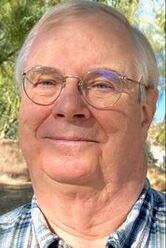 Peter Gow Peter Gow The other day my colleague Corinne Dedini wrote here about issues of time and space and the opportunity that schools have been given by the disruptions of the pandemic to reimagine and recreate the ways in which they use these traditionally precious “school day” resources. Corinne nails the issue, as always. At various times in my working life I have been called upon—as have most academic leaders—to engage with matters of schedule change. Several times this was at the schools where I worked, but on a few occasions I have been asked to offer guidance to other schools based on my own experiences, and I tried to synthesize these into some coherent advice. Corinne used “time and space” as shorthand that most academic leaders will translate into “schedule,” and this is absolutely correct—schedule broadly (and properly, IMHO) conceived. Time and space are the obvious variables in most school schedules, but schools that get into the work discover that the ways in which people—students and staff—are organized and in which programs are conceived, delivered, and—this is new, reader, so hang on—recorded and credited are equally important elements in how “schedules” are created. It’s intuitively obvious that the size of a faculty and the relative size of the student body matter in the creation of a workable academic schedule. Financially prudent “critical mass” for section sizes can matter, and many independent schools have long ballyhooed ”small class size” as a selling point for themselves. Specialized courses (to which Corinne refers) can have an outsize impact on scheduling as “priority” programs. And how student academic progress and performance are recorded and described—credits and transcripts, in practice—impacts the matter of which students take which courses and when. To exacerbate matters, the ways in which students’ academic experiences are segmented and even siloed into traditional “academic disciplines” and departments militates, in a practical sense, the traditional academic schedule where seat time by “discipline” adds up to “graduation credits.” It is axiomatic in conversations about school schedules that the schedule must serve the program, but the a priori conditions under which most schedule conversations begin are too often predicated on notions of “disciplines” and crediting that date back to the work of the Committee of Ten, the group that codified American curriculum around the academic disciplines with which we are all familiar, circa 1892. Since that time those defined disciplines and time-bound “levels” within them have defined how we think about the elements of education and all conventional and familiar ways of describing students’ paths through the systems that have been handed down to us, modified and tweaked but little changed in essence. Yet in the past three decades we have been talking excitedly about interdisciplinary learning, new kinds of competency-based student performance evaluation and crediting, and the need for learning experiences to be relevant and socially meaningful to all students—all concepts that cry out for whole new ways of imagining and delivering “school.” To echo and support Corinne’s points, let us start right now to think differently about the ways we organize our programs, our people, and our use of time and space in the service of meaningful learning. I believe that as academic leaders and educators we are by definition committed to the idea that schooling is an essential and powerful tool in creating a future in which our planet and its people might survive and thrive. Let us, in Corinne’s words, think hard about how we can organize and build every aspect of the learning environments we create in order to promote—to use Corinne’s words—growth, exploration, kindness, wellness.
0 Comments
Leave a Reply. |
Don't miss our weekly blog posts by joining our newsletter mailing list below:AuthorsBrad Rathgeber (he/him/his) Archives
July 2024
Categories |

 RSS Feed
RSS Feed